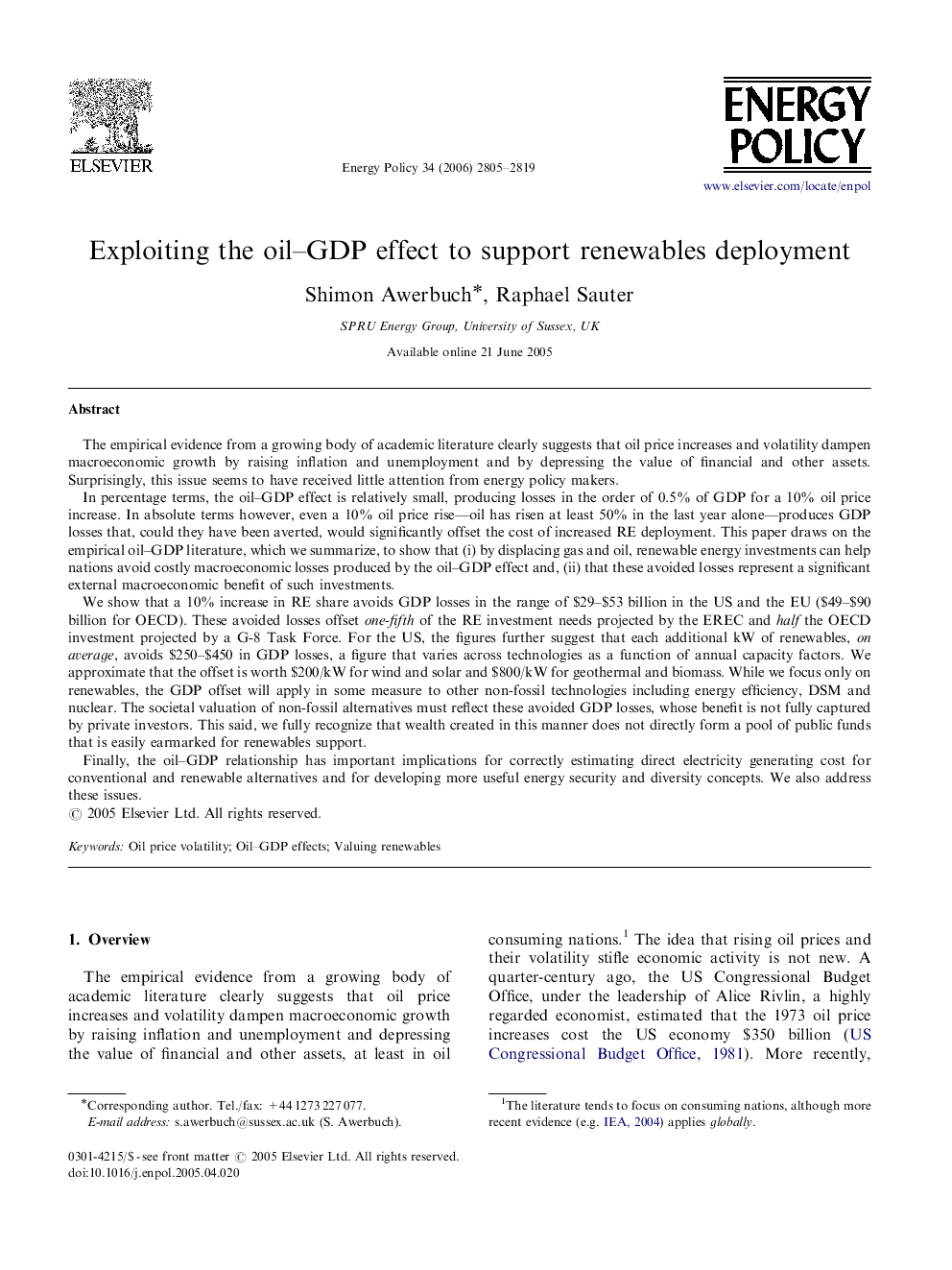| کد مقاله | کد نشریه | سال انتشار | مقاله انگلیسی | نسخه تمام متن |
|---|---|---|---|---|
| 994654 | 936103 | 2006 | 15 صفحه PDF | دانلود رایگان |

The empirical evidence from a growing body of academic literature clearly suggests that oil price increases and volatility dampen macroeconomic growth by raising inflation and unemployment and by depressing the value of financial and other assets. Surprisingly, this issue seems to have received little attention from energy policy makers.In percentage terms, the oil–GDP effect is relatively small, producing losses in the order of 0.5% of GDP for a 10% oil price increase. In absolute terms however, even a 10% oil price rise—oil has risen at least 50% in the last year alone—produces GDP losses that, could they have been averted, would significantly offset the cost of increased RE deployment. This paper draws on the empirical oil–GDP literature, which we summarize, to show that (i) by displacing gas and oil, renewable energy investments can help nations avoid costly macroeconomic losses produced by the oil–GDP effect and, (ii) that these avoided losses represent a significant external macroeconomic benefit of such investments.We show that a 10% increase in RE share avoids GDP losses in the range of $29–$53 billion in the US and the EU ($49–$90 billion for OECD). These avoided losses offset one-fifth of the RE investment needs projected by the EREC and half the OECD investment projected by a G-8 Task Force. For the US, the figures further suggest that each additional kW of renewables, on average, avoids $250–$450 in GDP losses, a figure that varies across technologies as a function of annual capacity factors. We approximate that the offset is worth $200/kW for wind and solar and $800/kW for geothermal and biomass. While we focus only on renewables, the GDP offset will apply in some measure to other non-fossil technologies including energy efficiency, DSM and nuclear. The societal valuation of non-fossil alternatives must reflect these avoided GDP losses, whose benefit is not fully captured by private investors. This said, we fully recognize that wealth created in this manner does not directly form a pool of public funds that is easily earmarked for renewables support.Finally, the oil–GDP relationship has important implications for correctly estimating direct electricity generating cost for conventional and renewable alternatives and for developing more useful energy security and diversity concepts. We also address these issues.
Journal: Energy Policy - Volume 34, Issue 17, November 2006, Pages 2805–2819